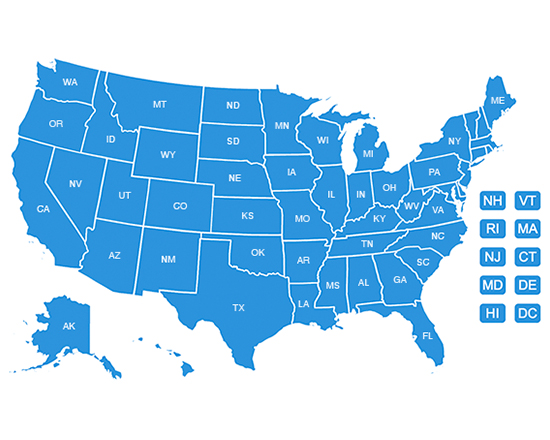The Nursing Home Law Center is committed to providing the legal resources necessary to hold negligent facilities accountable.
Nursing Home Respiratory Infections Lawyer

Respiratory infections are the leading cause of death among nursing home patients. This article examines the risk factors, causes, prevention practices, and legal implications of respiratory infections.
Common Types of Respiratory Infections
Common respiratory infections, such as pneumonia, the flu, and the common cold, are significant issues in nursing homes. Close quarters make it easy for infections to spread, mostly through large respiratory droplets, air, or contaminated surfaces.
Here’s a look at these respiratory tract infections, their causes, and impact:
- Pneumonia and bronchitis: These lower respiratory tract infections affect the lungs and airways. They can be caused by bacteria, viruses, fungi, and inhaled irritants and often develop as secondary infections from an upper respiratory tract infection.
- Influenza: The flu is one of the most common upper respiratory infections. It can cause inflammation, weaken the resident’s immunity, and spread to the lungs.
- COVID-19: COVID-19 is a highly contagious viral infection that affects both the upper and lower respiratory tracts. It can have severe complications, especially in older adults.
- Common cold: Most viral respiratory infections are caused by rhinoviruses. They are usually mild, but they spread easily in shared spaces.
- Respiratory syncytial virus (RSV): RSV is highly contagious, and it can cause severe complications in nursing home residents.
Increased Risk in the Elderly
Nursing home residents are at high risk of developing respiratory infections and complications. The risk factors include:
- Weakened immunity: Respiratory infections are especially dangerous for elderly residents, as their immune systems may be unable to fend off pathogens.
- Underlying health conditions: Conditions such as diabetes, heart disease, chronic obstructive pulmonary disease, asthma, dementia, and cancer can all make respiratory infections more likely and more dangerous.
- Close living quarters: Shared areas, dining rooms, and facilities increase the risk of contagion, especially if the ventilation is poor.
- Feeding tubes and limited mobility: Residents who are bedridden, have difficulty swallowing, or have to eat through feeding tubes, can inhale food, saliva, or other particles, which can cause aspiration pneumonia.
Serious Complications and Mortality
Frail elderly persons are more likely to suffer complications such as pneumonia, sepsis, and respiratory failure. These infections diminish the residents’ quality of life, causing severe injury and, sometimes, death.
- Community-acquired pneumonia has a one-year mortality rate of 40%. [1]
- If a lower respiratory infection develops into sepsis, the risk is even greater. Nursing home residents with severe sepsis have an in-hospital mortality of 37%. [2]
- Residents who survive the initial 30 days are more likely to need feeding tubes, develop a pressure ulcer, become less independent, and suffer short-term memory problems. [3]
Causes of a Respiratory Infection in Nursing Homes
Pathogens, weakened immune systems, and shared and crowded living spaces are the most common causes of respiratory infections in nursing facilities.
Infectious Agents (Viruses, Bacteria)
Nursing home respiratory infections are caused by microorganisms, usually viruses and bacteria. The most common sources include:
- Influenza viruses
- Streptococcus pneumoniae
- Respiratory Syncytial Virus (RSV)
- COVID-19
- Human Metapneumovirus
- Parainfluenza viruses
- Adenoviruses
Weakened Immune Systems
Immunosenescence, or age-related immune decline, increases the risk of nursing home respiratory infections. Nursing home patients are also more likely to suffer from chronic illnesses such as COPD, dementia, and heart disease, which limit the body’s capacity to fight infections.
Close Living Quarters and Crowding
Infectious diseases are more likely to spread in nursing facilities, as large respiratory droplets from coughing and sneezing remain on surfaces for a long time.
A study of COVID-19 cases confirms that crowded nursing homes have higher outbreak incidences and mortality rates. Residents are safer from infections in a less crowded facility, and this applies beyond COVID-19. [4]
Inadequate Infection Control Practices
Nursing homes are required to create and implement infection prevention and control programs that comply with industry standards. These prevention practices include:
- Regular cleaning and disinfection of the area
- Isolation of infected residents
- Vaccination programs
- Proper hand hygiene
- Adequate oral care
Recognizing the Signs and Symptoms in Nursing Home Residents
Respiratory infections may present differently in nursing home residents, meaning the staff must be educated to notice the symptoms early and understand how they differ from other age cohorts.
Typical Symptoms
Respiratory infection symptoms are well-known, ranging from mild symptoms such as those of a cold to more severe symptoms typical of pneumonia.
Most people will have symptoms such as cough, fever, sore throat, or runny nose. With more difficult nursing home infections, people can also feel shortness of breath, chest congestion, or chest pain, especially when breathing or coughing.
Atypical Presentations in the Elderly
Respiratory infections can show up differently in elderly nursing home residents, making early detection challenging. Symptoms can include confusion or disorientation, weakness and fatigue, a decline in functional abilities, agitation, and low-grade fever.
Infections in nursing homes can be confused with other age-related illnesses, such as dementia, so nursing home staff needs to be educated on these differences.
Preventing Respiratory Infections in Nursing Homes
Nursing home respiratory infection cases are common, but they can be prevented in various ways, including:
Vaccination Programs
Flu and pneumonia vaccinations help prevent infectious disease outbreaks, ensuring influenza, pneumonia, and COVID-19 do not rapidly spread throughout the institution. CMS profiles show each facility’s vaccination rates for both nursing staff and residents.
Infection Control Measures
Staff members have to protect nursing home patients from infections. This responsibility includes:
- Proper hand hygiene
- Respiratory etiquette regarding coughing and sneezing
- Isolation of infected residents
- Ensuring the nursing home is clean and disinfected
Early Detection and Treatment
Early recognition and prompt treatment help prevent complications. Unfortunately, many nursing homes suffer from understaffing or insufficient training, which increases the risk of complications.
A common result of this is an upper respiratory infection developing into a secondary, lower respiratory infection, which can result in sepsis and even death.
Nursing Home Negligence and Respiratory Infections
Nursing home residents have the right to be protected from infections and given treatment if they fall ill. When nursing facilities fail to uphold this obligation and harm a resident, it can be considered negligence.
Failure to Implement Infection Control Measures
Federal and state protocols outline how nursing homes should prevent, control, and treat infectious diseases. If staff do not adhere to these protocols, such as not washing their hands frequently, they may be considered responsible for the spread of infection.
Delayed Diagnosis and Treatment
If the staff fails to notice and treat respiratory infections on time, it can have devastating effects on the infected patient, including:
Inadequate Staffing and Training
Nursing homes must employ adequate staff and provide proper training to prevent and manage respiratory infections. Failure to do so can compromise infection control and resident care, leading to situations such as COVID-19 and influenza outbreaks and worse patient outcomes.
The Role of a Nursing Home Injury Lawyer
If your loved one suffered an infection in a nursing home, an experienced nursing home abuse lawyer can help you pursue legal action.
Investigating Potential Negligence
A personal injury lawyer can investigate the circumstances that led to your family member’s respiratory infection. They know what kind of evidence works in nursing home negligence cases, such as:
- Medical records
- Witness testimonies
- Photographs
- Expert testimonies
- Facility records
Holding the Nursing Home Accountable
Nursing homes that harm patients due to negligence must be held accountable. You can do this by filing a complaint with regulatory agencies, as well as a personal injury lawsuit.
The first option can result in inspections, fines, and penalties for the nursing home. In contrast, the second allows you to recover medical expenses, pain and suffering, and, in some cases, punitive damages.
Protecting Residents’ Rights
Lawyers can advocate for the rights of nursing home residents and ensure the facility is punished for its negligence. They will pressure the administration to improve its standard of care and protect other vulnerable residents from respiratory infections and other influenza outbreaks.
Secure Expert Legal Representation!
If you or a loved one has been a victim of nursing home negligence, you can seek legal help. Nursing Home Law Center has a team of experienced attorneys who understand how facilities and insurance companies work. We have helped thousands of families recover compensation for their loved ones who suffered respiratory infections.
Call (800) 926-7565 for a free consultation, or fill out our contact form.
References: [1] National Library of Medicine, [2] National Library of Medicine, [3] National Library of Medicine, [4] National Library of Medicine


